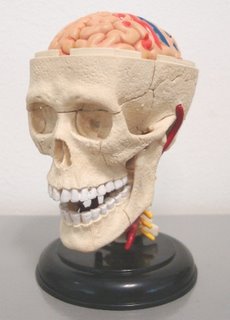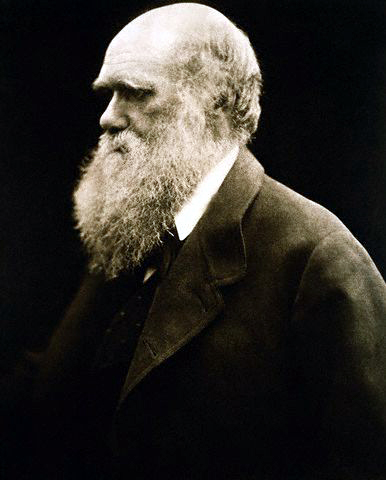
In this fourth installment of our continuing series on stories of the second best, Fresh Brainz turns to the life and work of
Alfred Russel Wallace - a great scientist who never became legend.


Wallace (left photo) is the co-discoverer of natural selection, a crucial mechanism for biological evolution.
In fact, he almost scooped
Charles Darwin (right photo) when he formulated his ideas about natural selection in June 1858 while suffering from malaria in a tropical island (in modern-day Indonesia). He sent his
essay entitled
On the Tendency of Varieties to Depart Indefinitely From the Original Type to Darwin, who was shocked to see that Wallace's ideas were so similar to his own.
Darwin had spent nearly 20 years working on his idea, and his dream was about to be dashed!
This could have a sparked off a fierce academic rivalry, but to the credit of both scientists, the situation was amicably resolved.
Wallace realized that Darwin was a much more prominent biologist and had developed the natural selection hypothesis much further. Thus, he sought to cooperate, rather than to compete with him. Darwin reciprocated in collegial spirit (years later he would also help get Wallace out of financial difficulty by lobbying for a government pension).
They agreed to announce their discovery jointly Darwin decided that their discovery would be announced at the Linnean Society meeting on the first of July.
Their papers were read by the secretary of the meeting, since both Wallace (who was in present-day Kalimantan) and Darwin (who was attending the funeral of his son) were unable to attend.
The papers made very little impact at that time.
Undeterred, Darwin rushed to complete his
On the Origin of Species by Means of Natural Selection, which was finally published in November 1859. The book was so popular that it quickly sold out.
The rest is history, and Wallace would never rise above the shadow of Darwin.
But Wallace did not merely spark off the revolution in evolution - he had his own distinct ideas about natural selection.
For example, he emphasized adaptation to the ecological environment as the main driving force of natural selection, whereas Darwin focused more on intra-species competition.
Wallace also proposed a role of natural selection as a feedback mechanism for keeping organisms adapted to their environment. Today we call this process "purifying selection" - Darwin himself did not appreciate the stabilizing effect that natural selection can have on populations.
In addition, Wallace discovered a way in which natural selection can lead to reproductive isolation. He predicted that hybrid offspring of two varieties that have diverged far from the parental species would have poorer adaptive fitness, thus allowing natural selection to drive them further apart - resulting in a split into two new species. This is called the
Wallace Effect.
Despite his many contributions to evolutionary biology, few biologists today are willing to call themselves "Wallacean (or Wallacian?) evolutionists".
Why?
There are two main reasons:
Firstly, Wallace's version of evolution contained some errors.
He downplayed the role of sexual selection, an important aspect of natural selection. He also did not consider the possibility of neutral evolution (from today's perspective he would be a pan-adaptationist).
But more importantly, Wallace did not believe that natural selection applied to the human mind and consciousness. He was a theistic evolutionist who believed that an unseen Spirit had intervened in the course of evolution to produce the human mind.
Another reason is that Wallace's reputation as a scientist gradually declined from the 1860's onwards, as he became more and more attracted to spiritualism.
He wasn't a fan of organized religion.
But he liked phrenology, experimented with hypnosis and was convinced that some of the phenomena experienced during séances were real. He believed it so much that he was willing to defend spiritualist mediums against allegations of fraud, severely undermining his own reputation.
He also became a strong opponent of vaccination, a new medical technique at that time which would later save millions of lives from infectious diseases such as smallpox.
Wallace was convinced that the benefits claimed by vaccination proponents were simply results of better hygiene. He believed that these people were protecting their own vested interests. He even produced questionable statistics while trying to support his anti-vaccination stand during a Royal Commission investigation.
This sort of behaviour alienated Wallace from his scientific colleagues and he quickly faded into obscurity after his death.
Even today, his historic legacy to modern science continues to be controversial.
Still, Fresh Brainz is always happy to root for the underdog.
Wallace was not only a superb scientist, but he also has
direct links with Singapore (unlike
Albert Einstein), visiting our island numerous times to collect beetles and other insect specimens.
He certainly deserves to be better known and more widely read - which is why Fresh Brainz is so happy to feature his story!
Ok, that's not
completely true.
It's his cool glasses that sealed the deal.
Totally geek.
Would you like to know more?
More resources on Wallace
- The Alfred Russel Wallace Page
- Rocky Road: Alfred Russel Wallace
Other stories of the second best
- Swiss vs British Everest teams
- Steve Jobs vs Bill Gates
- Golgi vs Cajal
 Here's another collection of photos, this time with a common theme that flows through all of them.
Here's another collection of photos, this time with a common theme that flows through all of them.







 Have you ever had this thought?
Have you ever had this thought?


 We do the hard work of swimming the globe for the splashiest science articles - so you don't have to.
We do the hard work of swimming the globe for the splashiest science articles - so you don't have to.







 In 1983,
In 1983, 







